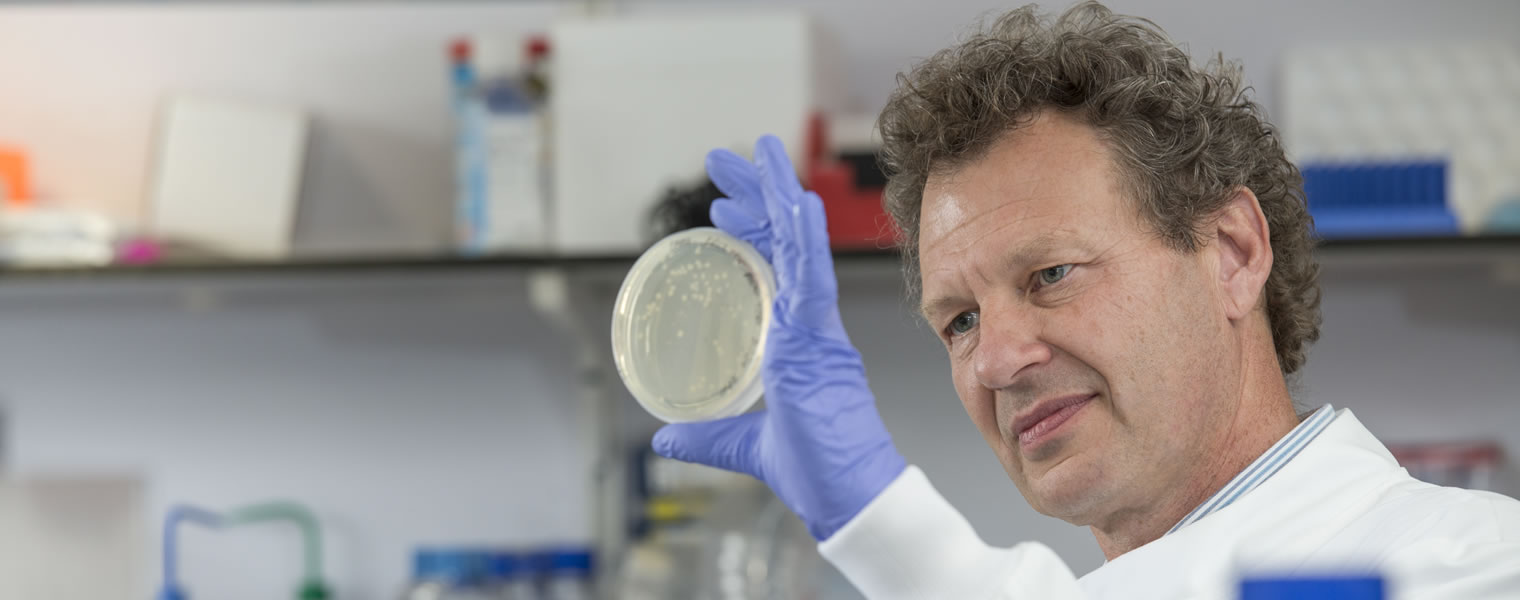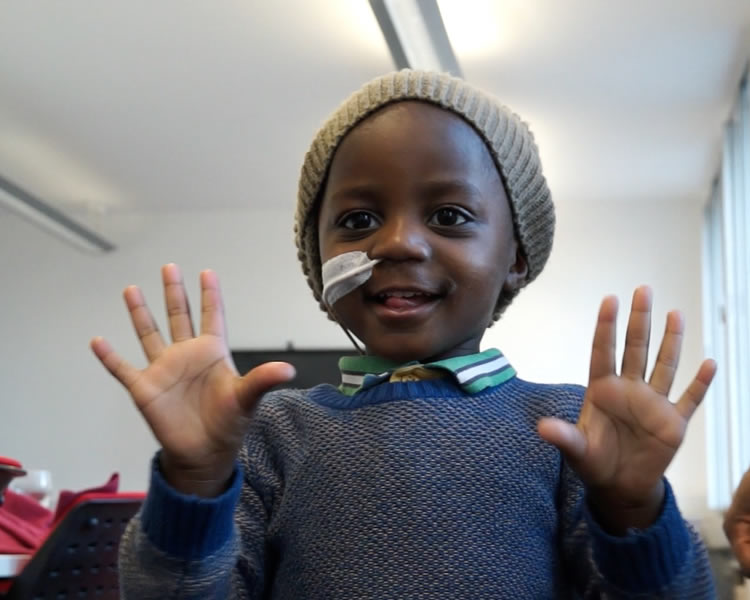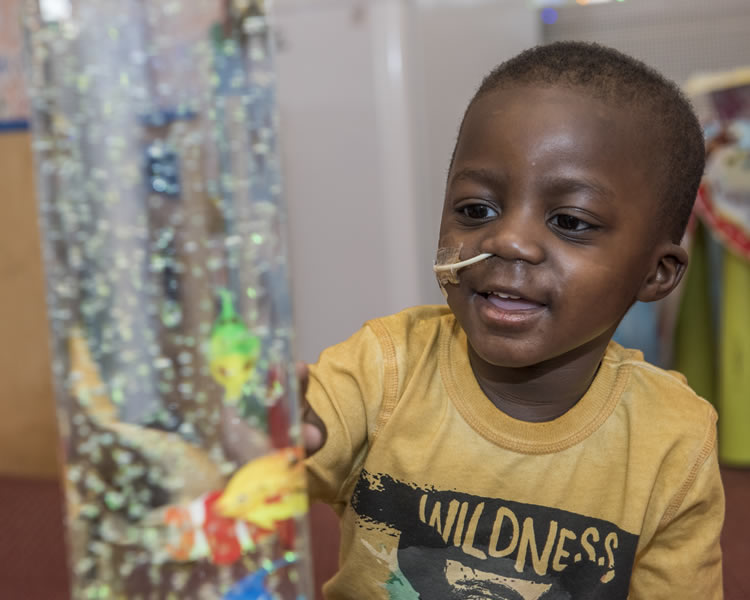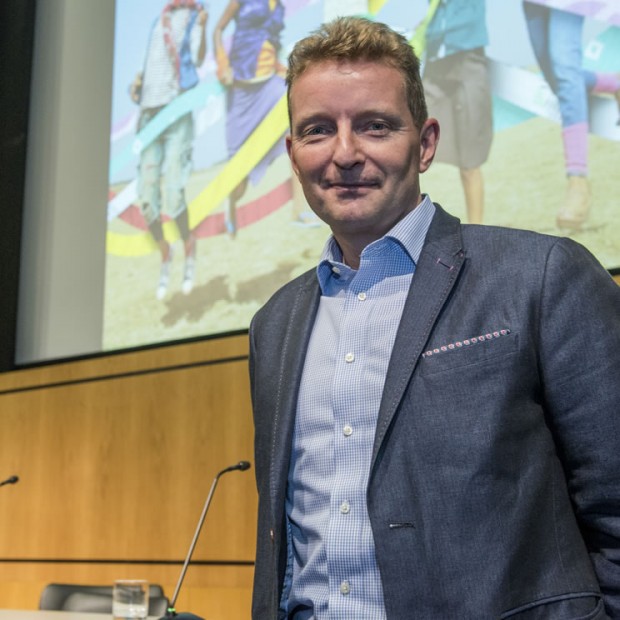Hartley News Online Your alumni and supporter magazine
The new year brought some exciting developments for Southampton’s new Centre for Cancer Immunology. Funding is ahead of schedule, planning permission has been approved, and under the leadership of Professor Tim Elliott, appointed Director of the Centre in November 2015, building work is set to begin.
The campaign to raise £25m to establish the Centre is the biggest fundraising effort the University has ever undertaken. With over £18.5m already raised, the campaign is well under way, and is in fact ahead of target. There is more good news in that, with planning permission approved and much of the enabling work completed, the University has agreed to underwrite the £25m programme to erect the building. It is a huge vote of confidence that has enabled the build to progress to now taking on a contractor.
The Centre is of enormous importance, explains Tim, who is also Professor of Experimental Oncology at Southampton. “This will be the first dedicated cancer immunology centre in the UK that brings the whole research pipeline under one roof: from pioneering discovery science to applied research and preclinical modelling and crucially onto first-in-human clinical trials and beyond. This is what Southampton is famous for and the new Centre will ensure that we are able to step up the flow through this pipeline.”
Bench to bedside
The building itself will stand as a milestone in what is already a long track record of immunotherapy at Southampton. “We have been researching cancer immunotherapy for forty years. The Centre is a part of the natural evolution of the fact that we have been field leaders over that time,” says Tim.
A lot of people have invested money and hope in us. The new building will stand as a reminder of that. Hopefully it will also remind our donors that this is an ongoing process: our research has momentum and will carry on into the future.
He continues: “I am really keen to find ways of keeping all our donors involved in our progress long after the contractors have handed over the keys.”
In addition to ensuring the building is built on time, and fit for purpose, Tim will be embracing his long-term strategy of harnessing research power from across the University. This will involve tapping into the wealth of knowledge and expertise that exists in Southampton, for example, within other clinical disciplines like respiratory disease, and further afield into disciplines such as mathematics and computational modelling, chemistry and electronic engineering.
Tim is no stranger to the power of collaboration, having led on the establishment of the Institute for Life Sciences in 2010. “It was a departure from the way the University ran to have a large institute that didn’t belong to a Faculty, but instead cut across the university structure. It was difficult to persuade people that it was the right thing to do. Now, it is reflective of a culture change across the University and acceptance that getting multiple perspectives on a problem is the way to advance step change,” he says.
In another example of his belief in collaboration, Tim has lectured at Winchester School of Art on the interface between art and science and has had an artist in residence at the hospital for 10 years. “It’s no surprise to me that some of the most creative figures in history have produced both great art and great science” he points out.
Areas of focus
While running the Centre Tim will also maintain an active laboratory, something that he believes is of paramount importance.
He and his team are studying the way in which cancer is recognised by our immune system as something that is ‘foreign’. Cancer cells are far more like normal cells than a foreign invader such as a virus is, making it difficult for our immune system to spot the small differences. This is an essential first step to overcome for any kind of immunotherapy that relies on boosting our own immunity to cancer. Ongoing research is considering how the molecules on the surface of our cells that alert killer T cells to attack a virus can also alert them to select cancer cells. The second step is to overcome our immune system’s natural reluctance to attack cells that aren’t actually infected with a virus.
Tim’s particular focus is in the way in which protein molecules work: how they guide our immune system to recognise a cancer cell and signal our immune system to spring into action; how they switch our immune system off; and how their properties can be exploited to bias our immune system towards destroying cancer.
Tim has always been interested in cancer immunology. Having studied biochemistry at Oxford, he did a PhD in Southampton, where he first encountered the mix between biochemistry, immunology and cancer. He completed his postdoctoral training in the Center for Cancer Research at the Massachussetts Institute of Technology, which reinforced his view that cancer posed interesting new challenges to the study of immunology, and that a deeper understanding of cancer immunology would one day lead to new approaches to cancer treatment. On his return to the UK in 1990, he established his laboratory at the University of Oxford before taking up his current post in Southampton in 2000.
The product of a scientist’s innate curiosity are new discoveries, something that Tim describes as one of the most satisfying elements of his work:
“Even if they are just small niche findings, they are always something that nobody has discovered before. Usually, it’s a gradual dawning rather than a ‘eureka’ moment. Sometimes it comes with the benefit of hindsight and new knowledge. The best times are when this happens with the research student or postdoc who did the experiments, and especially when the result is unexpected. Watching their dejection turn into excitement during the discussion is immensely satisfying.”
Hopes for the future
With a demanding job and active life outside work, Tim has his hands full. In between his role as director and research scientist, he also cooks for his family every night (his culinary prowess has led to a television appearance), and cycles and runs regularly, often in events to raise funds for the campaign. When he does take time to look forward, he sees a positive picture.
“In 10 years’ time I would like to think we were able to treat all cancers successfully with some kind of immunotherapy and that our attitude towards cancer will change as a result. It will move away from an inevitable killer disease to a manageable chronic disease much like diabetes, or chronic heart disease. It gives you some idea of how optimistic I am, and that’s from seeing the results coming out from current immunotherapeutic trials,” he concludes.
For more information about the campaign for the Centre for Cancer Immunology, visit www.southampton.ac.uk/youreit
Watch the video of Phelan, our latest clinical trial patient, and his dad and see how we are making a difference. Read Phelan’s full story here.





